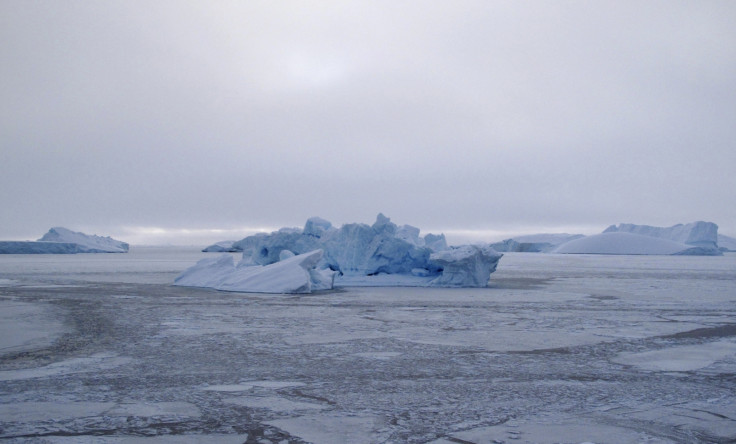Cool 2013 summer helps boost Arctic sea ice volume by more than a third

A cooler summer in 2013 helped the volume of the Arctic sea ice increase by more than a third, a new study has found.
Published in Nature Geoscience, the report states that following an unusually mild summer in 2013, the volume of ice in the north of the globe rose by 41% as cool air – 5% cooler than the previous year – prevented the ice from melting.
It was preceded by a 14% drop in ice volume between 2010 and 2012, says the study from UCL and University of Leeds which used information recorded by the European Space Agency's CryoSat-2 mission between 2010 and 2014.
Lead author Rachel Tilling from the Centre for Polar Observation and Modelling (CPOM), UCL Earth & Planetary Sciences, said: "The summer of 2013 was much cooler than recent years with temperatures typical of those seen in the late 1990s. This allowed thick sea ice to persist north-west of Greenland because there were fewer days when it could melt. Although models have suggested that the volume of Arctic sea ice is in long-term decline, we know now that it can recover by a significant amount if the melting season is cut short.
"Until CryoSat-2 was launched, it was tricky to measure the volume of Arctic sea ice as the pack drifts and measurements could not be taken across the whole region. Together with maps of sea ice extent, our measurements of sea ice thickness now complete the picture because they reveal what's going on below the water, where most of the action happens."
However, the team warns that 2013 was just a minor blip in the seemingly inevitable melting of the ice. Co-author Andy Shepherd, professor of Earth observation at UCL and at the University of Leeds, said: "Understanding what controls the amount of Arctic sea ice takes us one step closer to making reliable predictions of how long it will last, which is important because it is a key component of Earth's climate system.
"Although the jump in volume means that the region is unlikely to be ice-free this summer, we still expect temperatures to rise in the future, and so the events of 2013 will have simply wound the clock back a few years on the long-term pattern of decline. Our goal is to make sure we do not lose this unique capability to monitor Arctic sea ice when the mission ends."
© Copyright IBTimes 2025. All rights reserved.






















